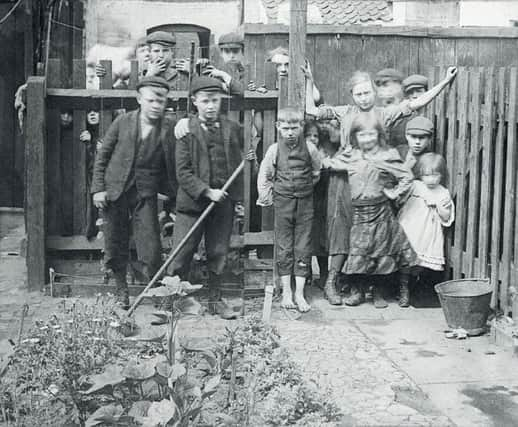The terrible deeds done to South Tyneside children


Yet as local historian Dorothy Ramser reveals, such awful acts of infanticide were not just being reported in the over-crowded cities of Victorian England, but here in South Shields and other North East towns.
Dorothy’s research makes for grim but gripping reading.
Taking us back to December, 1870, she explains how two Cullercoats fishermen were walking along Whitley Sands, near North Shields when they picked up a bundle which, once opened, was found to contain the dead bodies of two newly-born babies.
Advertisement
Hide AdAdvertisement
Hide Ad“In the village of Monkton, in May, 1873, Jane Ann Crisp, aged 19, the domestic servant of farmer Joseph Barnes, gave birth to a baby boy, alone in her room.
“Suspicious, the mistress of the household and a fellow servant entered the room and found the child lying dead on the bed.
“The police were informed and Jane Crisp was placed under surveillance before being taken to Durham Gaol.
“On July 14, 1873, she was tried, sobbing uncontrollably and begging forgiveness before the Honourable Sir William Baliol Brett, where the jury brought in a verdict of not guilty of child murder, and she was acquitted.
Advertisement
Hide AdAdvertisement
Hide Ad“That same year, in November, a baby boy was found dead between some palings near a garden in Westoe Lane, South Shields.
“From its appearance it was deduced that the child had been born alive but had met a violent death.”
Then in 1878, a North Shields coroner’s jury returned a verdict of wilful murder against persons unknown following the death of a new born that had been placed in an out-house, without clothing.
Dorothy says often the murders were committed by a so-called baby farmer, an older woman who would usually offer to look after the unwanted child or to provide adoptive parents for a fee of between £7 and £30. Women freely advertised this service in the newspapers.”
Advertisement
Hide AdAdvertisement
Hide AdEvidence can be found in an article which appeared in The Northern Daily of Thursday, February 6, 1890.
The article, entitled “Baby Farming”, reported on the previous night’s meeting of the Stockton Branch of the Society for the Protection of Children.
It revealed that a resolution was made in support of a bill to be introduced for the regulation of baby farming (some 200 of which were known to have been running in the country at the time.
“Some offered contracts where they agreed to kill a child in six months for £50 down, and another £50 for a death certificate. Another undertook to kill in three months, for £100 down with an understanding that no inquiries should be made.
“One such woman advertised at Newcastle.”
l Tomorrow Dorothy continues her account, and reveals the identities of one of the country’s most infamous baby farmers.